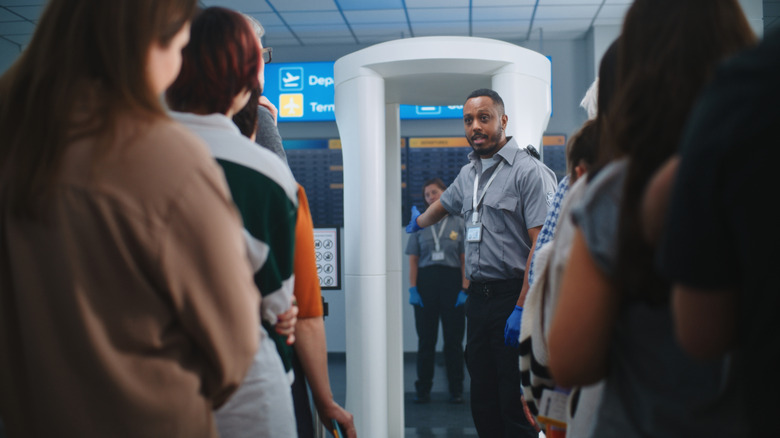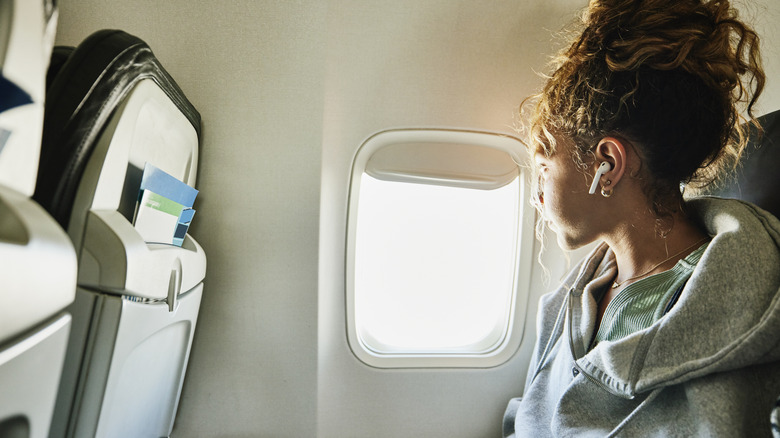The Best Ways To Navigate Through An Airport And TSA With Tourette Syndrome
Navigating an airport with Tourette syndrome (TS) can feel overwhelming, but a little preparation can go a long way. First, reach out to TSA Cares, a free service that provides extra assistance for passengers with disabilities and medical conditions. While you won't be exempt from going through security, you can be connected with a passenger support specialist who is trained to help. TSA does recommend calling at least 72 hours before your flight is scheduled for departure. Pro tip: for expedited screening, it might be worth investing in TSA PreCheck, which will get you through screening much faster (and you don't have to take your laptop out or remove your shoes).
At the security checkpoint, be sure to communicate with the agents about your TS. While TSA agents are generally trained to assist travelers with disabilities, many may not be familiar with TS. Letting them know about your condition beforehand can prevent misunderstandings. If you're worried about physical contact triggering tics, you can also request a private screening.
A useful tip is to carry an "I Have TS" card or wear a Hidden Disabilities Sunflower lanyard, which discreetly signals to airport staff that you may need extra assistance. If you are worried about having noticeable tics, arriving early can help you avoid feeling rushed. Another hack to have a more relaxing time at the airport is to book late-night flights when fewer people are around.
Tips for flying with Tourette syndrome
The next step is making the flight as smooth as possible. If you have the option to choose a seat, keep in mind what will be most comfortable for you — some passengers with TS prefer a window seat for extra privacy, while others might like the aisle seat for more mobility and room to stretch. Communication is key. If you're stressed about having tics during the flight, telling the flight crew about your TS before taking off can set expectations and ensure you have support if needed. If you experience uncomfortable motor tics, let the flight attendant know — they may be able to make sure you can get up and move around when safe.
Some people may use meditation techniques to overcome flying anxiety. But among the many hacks to make your economy flight more comfortable, having distractions ready is a great way to manage stress. Noise-canceling headphones can help with sensory overload, and audiobooks or fidget tools give you an outlet for nervous energy. If you're traveling with a companion, chatting with them can also be a way to stay relaxed.
Lastly, if you receive stares from other passengers, remember that you don't owe anyone an explanation — but if you feel comfortable sharing, a simple "I have Tourette syndrome" can quickly clear up confusion. It can also be a great opportunity to raise awareness. However, the most important thing is to focus on your own comfort and enjoy your trip.

